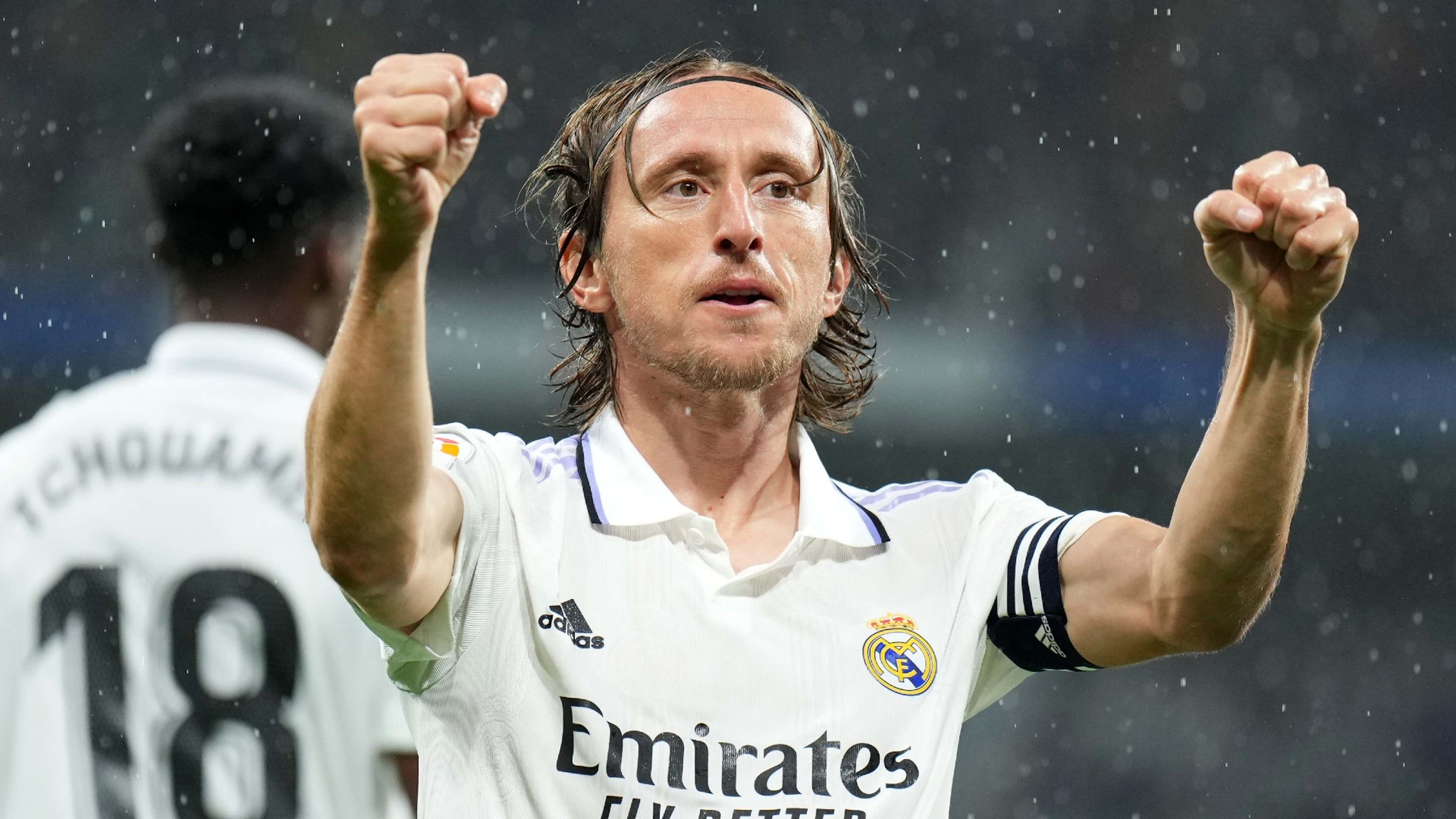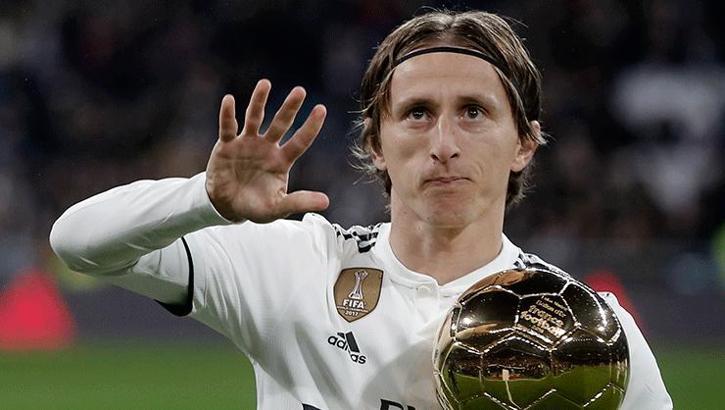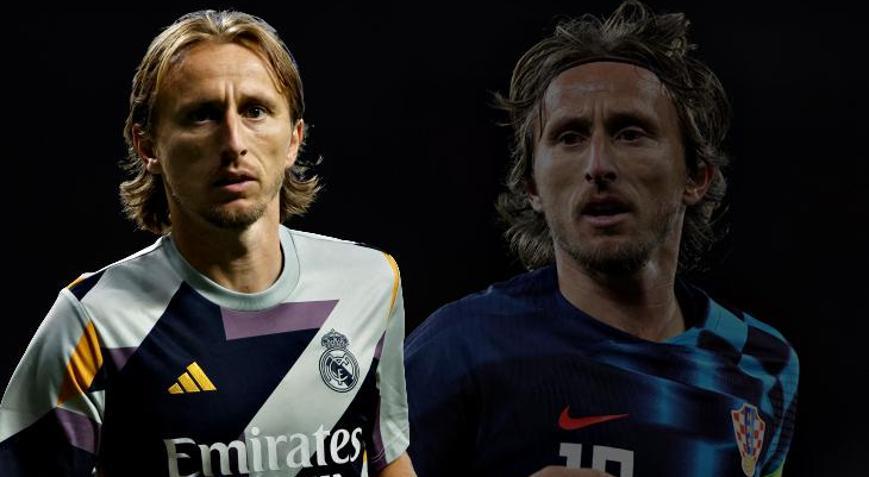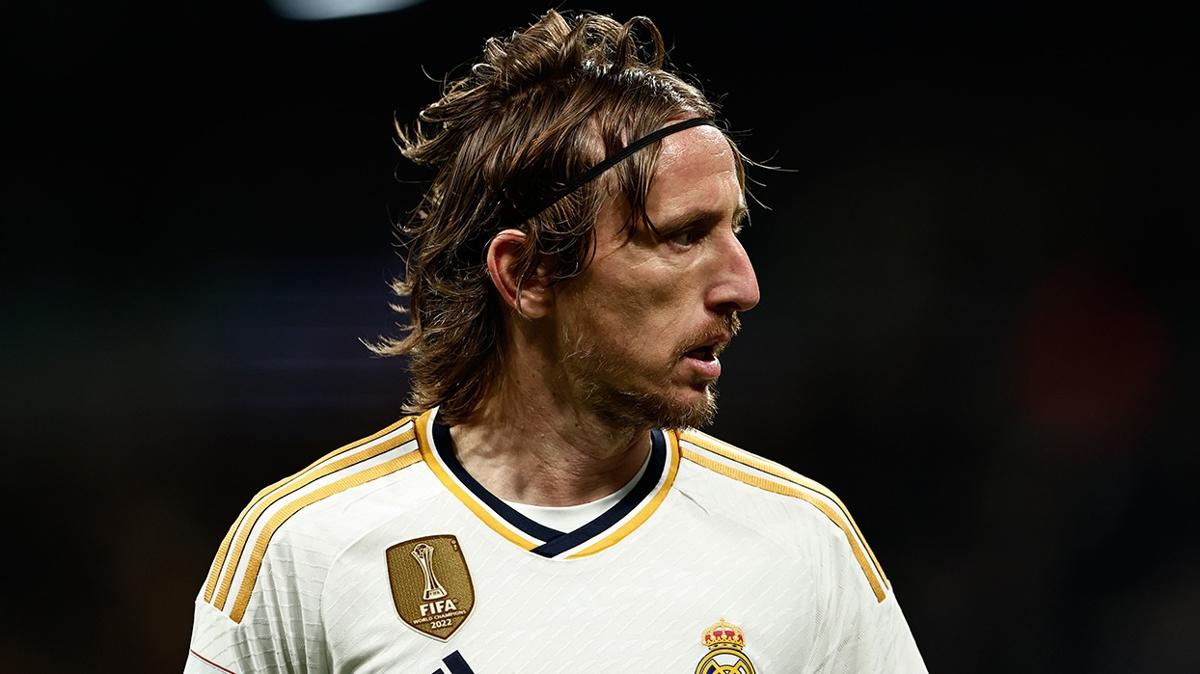Luka Modrić (Part1)
Luka Modrić (Part1)

Luka Modrić, born on 9 September 1985, is a proficient Croatian footballer plying his trade as a midfielder for Real Madrid in La Liga, while also captaining the Croatian national team. His on-field versatility is evident, primarily operating as a central midfielder, although he adeptly transitions into roles as an attacking or defensive midfielder. Recognized globally as one of the preeminent midfielders, Modrić holds the esteemed title of the greatest Croatian footballer to date.
Commencing his professional journey with Dinamo Zagreb in 2003, Modrić briefly ventured on loan to Zrinjski Mostar and Inter Zaprešić. His 2005 debut for Dinamo showcased his talents, attracting the attention of Premier League outfit Tottenham Hotspur. In 2008, he spearheaded Tottenham to UEFA Champions League qualification, marking a historic achievement after almost five decades. The summer of 2012 witnessed Modrić's transition to Real Madrid in a transfer deal worth 30 million. His impact was swift, securing the 2013-14 Champions League title in his second season and earning a spot in the prestigious squad of the season.
Under Zinedine Zidane's stewardship from 2016, Modrić played a pivotal role in Real Madrid's triumphant streak, clinching three consecutive Champions League titles from 2015–16 to 2017–18. The midfielder accumulated an impressive tally of 24 major trophies at Madrid, encompassing five UEFA Champions League titles, three La Liga titles, and two Copa del Rey titles.
Modrić's individual accolades are equally impressive, with the pinnacle being the 2018 Ballon d'Or, an honor untouched by anyone other than Lionel Messi or Cristiano Ronaldo since 2007. Additional distinctions include the Best FIFA Men's Player and the UEFA Men's Player of the Year Award. His midfield prowess has secured him spots in the FIFPRO World 11 six times and the UEFA Team of the Year three times. In 2019, Modrić received the Golden Foot award in recognition of his exceptional career achievements and charismatic personality./origin-imgresizer.eurosport.com/2022/12/05/3503413-71415428-2560-1440.jpg)
Internationally, Modrić made his debut for Croatia against Argentina in March 2006, later scoring his inaugural international goal against Italy in a friendly match. A linchpin in Croatia's second Golden Generation, he participated in every major tournament from UEFA Euro 2008 to 2020 and the FIFA World Cup from 2006 to 2022. Noteworthy milestones include his selection for the Euro 2008 Team of the Tournament and leading Croatia to the 2018 World Cup final, where he earned the Golden Ball. In the 2022 World Cup, he guided the team to a third-place finish, securing the Bronze Ball. March 2021 witnessed Modrić becoming Croatia's most capped player in history, a testament to his enduring impact. Furthermore, he claimed the Croatian Footballer of the Year title an unprecedented twelve times between 2007 and 2023.
Luka Modrić, born on 9 September 1985 in the hamlet of Modrići, part of Zaton Obrovački, experienced a childhood deeply intertwined with the landscape of southern Velebit, situated north of Zadar in SR Croatia, a republic within SFR Yugoslavia at the time.
The eldest child of Stipe Modrić and Radojka Dopuđ, who initially toiled in a knitwear factory, Modrić's early years were predominantly spent in his paternal grandfather's stone house, perched on the road above the hamlet of Modrići, where, as a five-year-old, he found himself shepherding goats..jpg?auto=webp&format=pjpg&width=3840&quality=60)
However, Modrić's idyllic upbringing was disrupted by the Croatian War of Independence in 1991. As the conflict intensified, his family was compelled to flee the area. Tragically, Modrić's grandfather Luka met his demise at the hands of Serb rebels affiliated with the police of SAO Krajina in December 1991, near his residence in Modrići.
The family's house, after their departure, was reduced to ashes. Forced into the life of a refugee, Modrić and his family sought refuge in Hotel Kolovare for seven years, eventually relocating to Hotel Iž, both in Zadar.
Meanwhile, Modrić's father enlisted as an aeromechanic in the Croatian Army. Amidst the incessant bombings, football emerged as a means of escape from the harsh realities of war. Recalling those challenging times, Modrić acknowledged their impact on his character, stating that the hardships he faced shaped him profoundly.
Remarkably, he remained mostly oblivious to the war's gravity, thanks to the camaraderie he shared with other children, shielded from the harshness by their parents..jpg)
In the midst of these adversities, Modrić found solace in football, often playing in the hotel parking lot. In 1992, he embarked on both primary school and a sports academy journey, financed with the family's meager resources, occasionally supplemented by Modrić's uncle. Zvonimir Boban and Francesco Totti served as his early inspirations, igniting his passion for the beautiful game.
With unwavering support from his family, Luka Modrić actively engaged in representative camps and honed his skills at NK Zadar. Guided by coach Domagoj Bašić and the head of the youth academy, Tomislav Bašić, whom Modrić fondly referred to as his sporting father he recounted a touching tale where Modrić's father crafted wooden shin guards due to financial constraints, a story later disputed by the player himself.
Despite exhibiting promise, Modrić faced rejection from the renowned Croatian powerhouse, Hajduk Split, based on his perceived youth and slight build, a setback in the football-rich region of Dalmatia. However, his talents, showcased notably in a youth tournament in Italy, caught the attention of Tomislav Bašić, resulting in Modrić's move to Dinamo Zagreb at the age of 16 in late 2001.
Following a season with Dinamo Zagreb's youth squad, Modrić embarked on a loan spell in 2003 to Zrinjski Mostar in the Bosnian Premier League. During this period, he not only honed his versatile playing style but also earned the title of Bosnian Premier League Player of the Year at a mere 18 years old. Reflecting on the league's physical nature, Modrić asserted, Someone who can play in the Bosnian Premier League can play anywhere.
Modrić found himself loaned to Croatian side Inter Zaprešić, where his contributions played a pivotal role in securing the team's second position in the Prva HNL and a spot in the preliminary round of the UEFA Cup. Notably, he clinched the Croatian Football Hope of the Year award in 2004. Modrić's journey led him back to Dinamo Zagreb in 2005, marking a pivotal chapter in his evolving football career.
References
- "FIFA World Cup Russia 2018: List of Players: Croatia" (PDF). FIFA. 15 July 2018. p. 7. Archived from the original (PDF) on 11 June 2019.
- ^ Hugman, Barry J., ed. (2010). The PFA Footballers' Who's Who 2010–11. Mainstream Publishing. p. 290. ISBN 978-1-84596-601-0.
- a b c d "Player Profile". Real Madrid CF. Archived from the original on 24 November 2017. Retrieved 18 November 2017.
- ^ "Lȗka". Hrvatski jezični portal (in Serbo-Croatian). Archived from the original on 26 December 2018. Retrieved 17 March 2018. Lȗka
- ^ "mȍdar". Hrvatski jezični portal (in Serbo-Croatian). Archived from the original on 26 December 2018. Retrieved 17 March 2018. Módrić
- "Luka Modrić prvi put u karijeri bio je kapetan Real Madrida, iako su mnogi tvrdili da to nikad neće uspjeti". Net.hr (in Croatian). 30 October 2021. Archived from the original on 4 November 2021. Retrieved 30 October 2021.
- ^ "Modrić claims Man-of-the-Match award on 100th Champions League appearance". Real Madrid CF. 7 December 2021. Archived from the original on 14 December 2021. Retrieved 13 April 2022.
- ^ "Modrić named man of the match in the Spanish Super Cup final". Real Madrid CF. 16 January 2022. Archived from the original on 19 January 2022. Retrieved 13 April 2022.
- ^ "Real je pobijedio Bilbao i osvojio Superkup, a Modrić je golčinom okrunio sjajnu utakmicu". Telesport (in Croatian). 16 January 2022. Archived from the original on 18 January 2022. Retrieved 16 January 2022.
- ^ Hincks, Michael (9 March 2022). "Champions League: All eyes on Luka Modric, Real Madrid's vital cog for PSG clash amid suspensions and injuries". Eurosport. Archived from the original on 30 October 2023. Retrieved 13 April 2022.




































